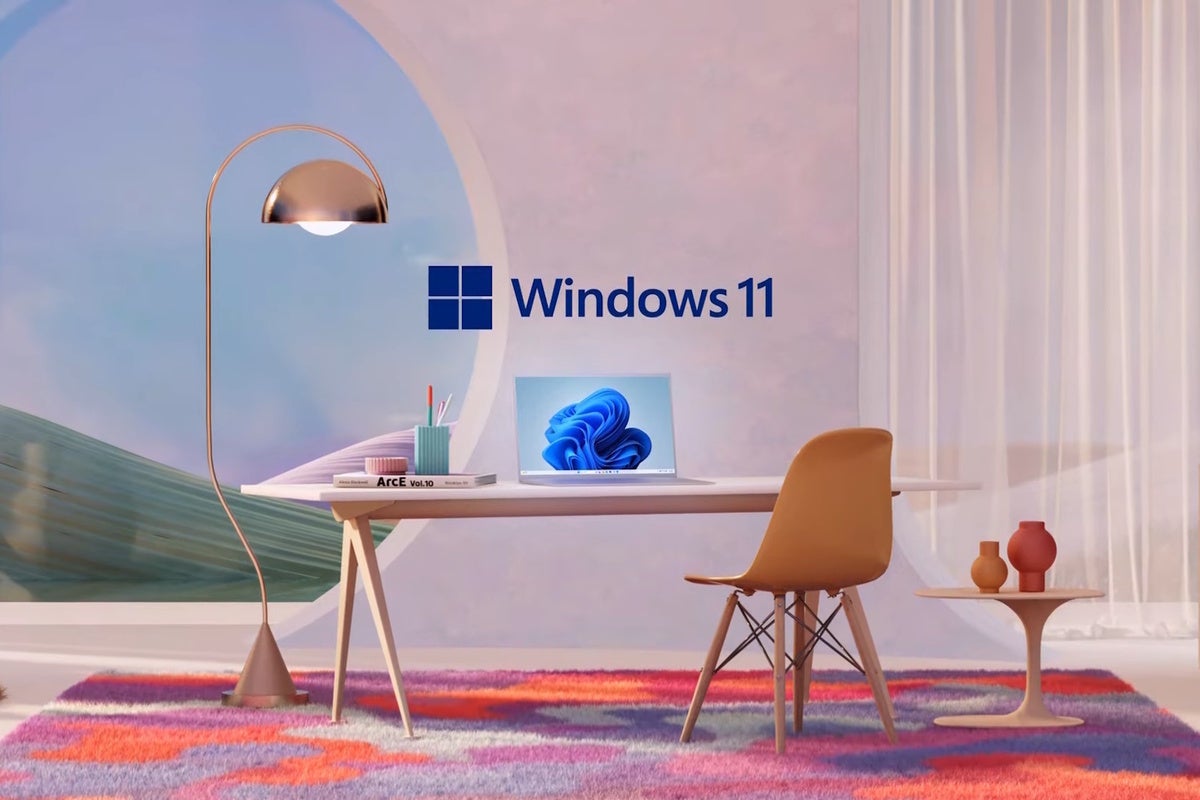Physical Address
304 North Cardinal St.
Dorchester Center, MA 02124
Physical Address
304 North Cardinal St.
Dorchester Center, MA 02124

Artificial Intelligence (AI) has been a buzzword in the tech industry for years, and its potential applications continue to expand. The recent Consumer Electronics Show (CES) 2024 showcased the growing prominence of AI-powered devices, particularly the emergence of “AI PCs.” Companies like Intel, AMD, NVIDIA, and Qualcomm were at the forefront, touting the capabilities of their hardware in running AI tasks on Windows 11 ‘AI PCs.’
One of the main drivers behind the rise of AI PCs is the increasing demand for advanced AI capabilities in everyday computing. As AI technology continues to evolve, consumers are eager to experience the transformative power of AI in their personal devices. This demand has pushed manufacturers to integrate dedicated AI hardware, such as neural processing units (NPUs), into their latest PC offerings.
The promise of AI PCs lies in their ability to perform complex AI tasks locally, without relying on external data centers. This opens up possibilities for faster processing, improved privacy, and enhanced user experiences. The addition of NPUs in Intel’s Meteor Lake chips and recent AMD chips has further fueled the excitement around AI PCs, as these low-power hardware components are specifically designed to accelerate AI processing.
However, it is important to note that the current generation of AI PCs may not fully live up to the transformative expectations. While AI PCs are already available for purchase, their capabilities are still limited compared to the future vision of AI-enabled computing. Many of the popular genAI tools, such as Copilot and ChatGPT, heavily rely on processing power from data centers rather than on the local computer.
Another factor that affects the development of AI PCs is the readiness of software and operating systems to fully utilize the potential of NPUs. Windows 11, for example, is not yet optimized for AI PCs with NPUs, and users may not experience significant AI-driven features out of the box. The promised “AI release” of Windows, expected later this year, aims to deliver NPU-powered features that will enhance user interactions and productivity.
Despite the current limitations, the rise of AI PCs signifies a significant step towards a future where AI capabilities are seamlessly integrated into everyday computing. As technology continues to advance, AI PCs have the potential to revolutionize various industries, from healthcare and finance to gaming and creative endeavors. The integration of AI hardware in PCs paves the way for innovative applications and experiences that were previously unimaginable.
In the next section, we will explore the effects of AI PCs on the computing landscape and how they are shaping the future of personal computing.
The rise of AI PCs, showcased at CES 2024, is set to have a profound impact on the future of personal computing. As AI technology continues to advance and AI capabilities become more integrated into everyday devices, the effects of AI PCs are becoming increasingly apparent.
One of the key effects of AI PCs is the ability to unlock enhanced AI capabilities for users. With dedicated AI hardware, such as NPUs, AI PCs can perform complex AI tasks locally, leading to faster processing and improved user experiences. Tasks that previously relied on data centers can now be executed on the user’s own hardware, providing greater privacy and reducing latency.
AI PCs have the potential to significantly enhance productivity and efficiency in various industries. With AI-powered features, such as contextual suggestions and intelligent automation, users can streamline their workflows and accomplish tasks more efficiently. AI PCs can assist in tasks like natural language processing, data analysis, and content generation, enabling users to focus on higher-level decision-making and creative endeavors.
Gaming is another area that stands to benefit from the advancements in AI PCs. With powerful GPUs and AI capabilities, AI PCs can deliver immersive gaming experiences with enhanced graphics, realistic physics simulations, and intelligent NPCs. AI algorithms can also be utilized to optimize game performance, adapt gameplay based on player behavior, and create dynamic and personalized gaming environments.
The integration of AI PCs in the healthcare industry holds great promise for innovative advancements. AI-powered diagnostic tools can analyze medical images, detect patterns, and assist healthcare professionals in making accurate diagnoses. AI PCs can also facilitate the development of personalized treatment plans, drug discovery, and predictive analytics, leading to improved patient outcomes and more efficient healthcare delivery.
AI PCs open up new creative possibilities for artists, designers, and content creators. With AI-powered tools and software, users can generate realistic images, create music compositions, and even assist in storytelling. AI algorithms can analyze vast amounts of data, providing insights and inspiration for creative projects. The combination of human creativity and AI capabilities can lead to groundbreaking innovations in various artistic fields.
AI PCs are reshaping the way humans interact with machines. Natural language processing and voice recognition technologies enable more intuitive and conversational interactions with AI-powered assistants. AI PCs can understand context, provide personalized recommendations, and adapt to user preferences, creating a more seamless and personalized computing experience.
While the current generation of AI PCs may have limitations, their development paves the way for future innovations. As AI technology continues to advance, AI PCs will become more capable, efficient, and integrated into various aspects of our lives. The ongoing research and development in AI hardware and software will drive further advancements, unlocking new possibilities and transforming the way we interact with technology.
In conclusion, the rise of AI PCs marks a significant milestone in the evolution of personal computing. These devices, equipped with dedicated AI hardware, offer enhanced AI capabilities, improved productivity, advanced gaming experiences, healthcare innovations, creative possibilities, and a new era of human-machine interaction. While the full potential of AI PCs is yet to be realized, their impact on various industries and everyday life is already becoming evident.
If you’re wondering where the article came from!
#